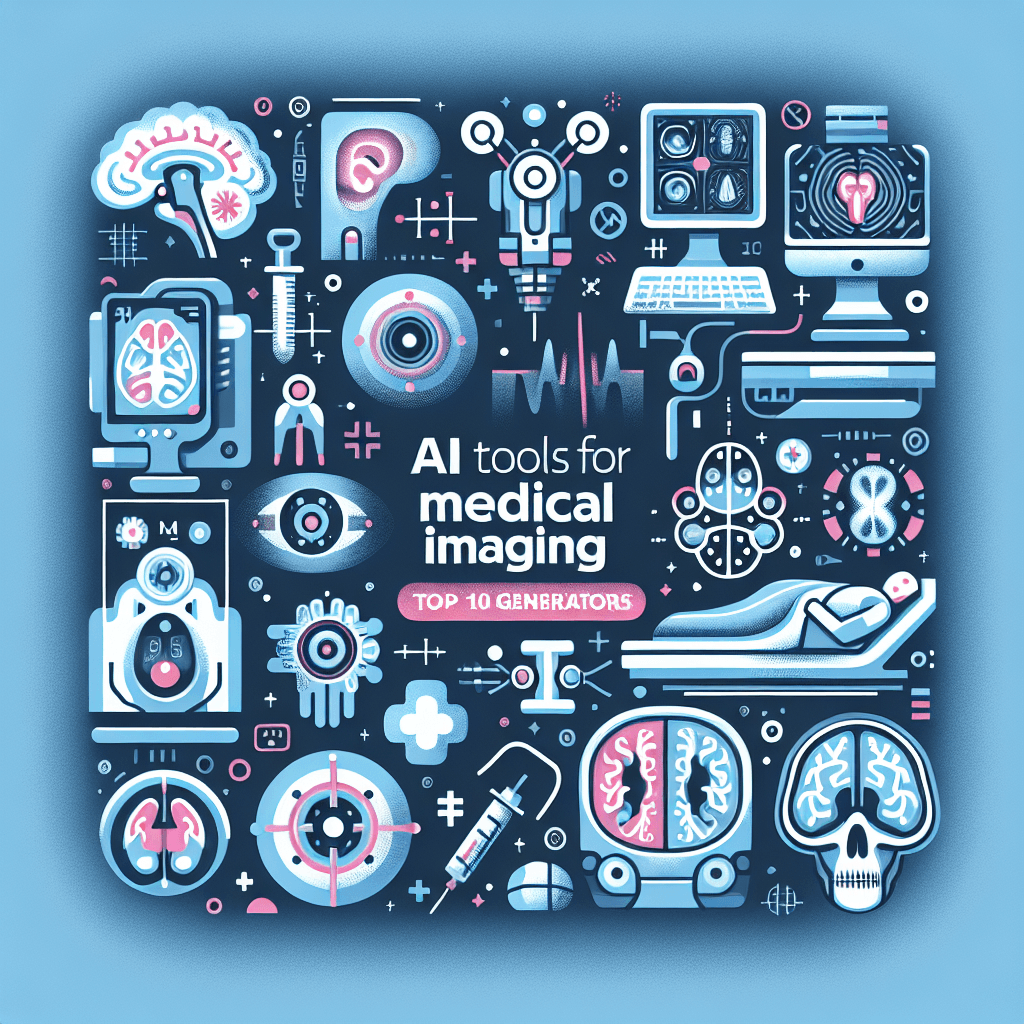In recent years, the healthcare landscape has witnessed a groundbreaking transformation, largely attributed to advancements in artificial intelligence (AI). Among the most promising applications of AI technology is its use in medical imaging, where it enhances decision-making, optimizes workflows, and improves diagnostic accuracy. In this article, we delve into the top 10 AI image generators that are reshaping the medical imaging field, streamlining processes, and ultimately leading to better patient outcomes.
Understanding the Importance of AI in Medical Imaging
Revolutionizing Diagnostic Processes
AI’s role in medical imaging cannot be understated. With the ability to process massive volumes of data at unprecedented speeds, AI algorithms assist radiologists by highlighting abnormalities in images such as X-rays, MRIs, and CT scans. This capability not only expedites the diagnostic process but also increases its accuracy, reducing the likelihood of false positives.
Enhancing Image Quality
Modern AI tools are engineered to enhance image clarity and detail, thereby providing medical professionals with sharper insights. Techniques such as super-resolution imaging leverage deep learning models to restore lost details in images, ultimately leading to more reliable interpretations.
The Rise of AI Image Generators
1. Google DeepMind Health
One of the trailblazers in this arena, Google DeepMind has developed cutting-edge AI algorithms that outperform human radiologists in determining breast cancer risk from mammograms. Their models analyze thousands of high-resolution images, learning to identify subtle patterns invisible to the human eye, setting a new benchmark for diagnostic accuracy.
2. Zebra Medical Vision
This Israeli startup employs AI to extract insights from medical imaging data, enabling rapid diagnoses. Their "radiology AI" platform can automatically read radiology images and recognize a multitude of conditions, allowing for quicker decision-making processes in clinical settings.
3. Aidoc
Aidoc focuses on providing radiologists with real-time alerts regarding critical findings in medical images. By utilizing advanced algorithms, this tool prioritizes urgent cases, ensuring that patients receive timely treatment when it matters most.
4. Enlitic
With its innovative deep learning algorithms, Enlitic aims to harness the power of AI to assist in diagnosing diseases early. The platform integrates seamlessly into existing hospital workflows, offering immediate feedback on image interpretation and empowering physicians to make well-informed decisions swiftly.
5. ImagenAI
ImagenAI specializes in creating customized AI algorithms tailored to a facility’s unique imaging practices. By learning from a specific dataset, it provides personalized assistance to radiologists, enhancing efficiency and consistency in image reporting.
6. Qure.ai
This AI-driven tool automates the analysis of X-rays and scans, generating insights that aid radiologists. Qure.ai uses deep learning frameworks to deliver accurate results and recommendations reliably, offering a significant boost to diagnostic capabilities.
7. PathAI
In the realm of pathology, PathAI excels by providing AI tools that assist pathologists in analyzing complex tissue samples. Their technology not only enhances diagnostic precision but also facilitates research, aiding in the development of potential treatments.
8. Aidence
Focused on lung cancer detection, Aidence offers an AI platform that interprets CT scans with remarkable accuracy. By flagging potential issues, their tools help reduce the workload of radiologists while improving patient outcomes through earlier intervention.
9. Lunit
Lunit employs AI to derive actionable insights from mammography and chest X-ray images. Their algorithms assist clinicians in detecting anomalies effectively, thus maintaining a high standard of care in breast and lung cancer screening.
10. Freenome
Freenome leverages both AI and genomics to analyze imaging and lab results for cancer detection. Their dual approach enables the identification of early-stage cancer, offering hope to patients through timely diagnosis and treatment.
Overcoming Challenges in AI Medical Imaging
Addressing Data Privacy Concerns
With the increasing reliance on AI in healthcare, the issue of data security has become paramount. Medical organizations must implement robust measures to protect sensitive patient information while complying with regulations such as HIPAA.
The Need for Collaboration Between AI Developers and Healthcare Professionals
To maximize the benefits of AI tools, close collaboration between developers and healthcare professionals is essential. This partnership ensures that AI systems are developed with practical clinical insights in mind, addressing real-world challenges.
Interpreting AI Recommendations
While AI tools offer invaluable assistance, the interpretation of suggestions should always be performed by skilled professionals. Radiologists retain the responsibility of clinical decision-making, integrating AI insights with their expertise for comprehensive patient care.
The Future of AI in Medical Imaging
Integration with Other Technologies
As technology continues to advance, the integration of AI with other healthcare innovations like telemedicine and electronic health records will further enhance its capabilities in medical imaging, creating a more cohesive healthcare ecosystem.
Continued Research and Development
Ongoing research in deep learning and image processing will pave the way for even more sophisticated AI tools. As these systems evolve, their ability to perform complex analyses and provide actionable insights will become increasingly refined.
Conclusion: Embracing the Future of Healthcare with AI
The integration of AI tools in medical imaging is more than just a trend – it’s a transformative force in modern healthcare. As we explore the top 10 image generators, it becomes evident that these innovative solutions have the potential to significantly enhance diagnostic accuracy and patient care. By embracing these advancements, healthcare professionals can focus more on providing high-quality care while ensuring that patients receive timely and effective treatment. As technology continues to evolve, the future of medical imaging powered by AI holds great promise, pushing the boundaries of what’s possible in the healthcare landscape.








